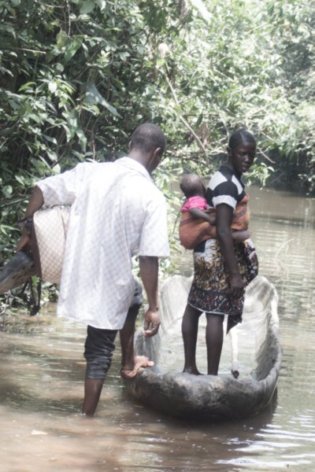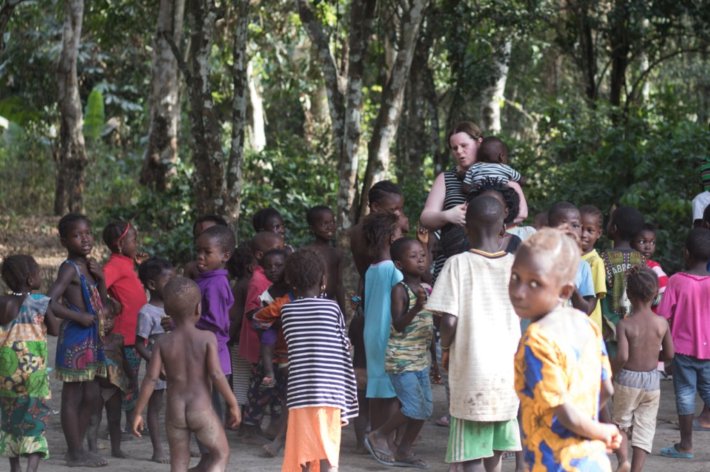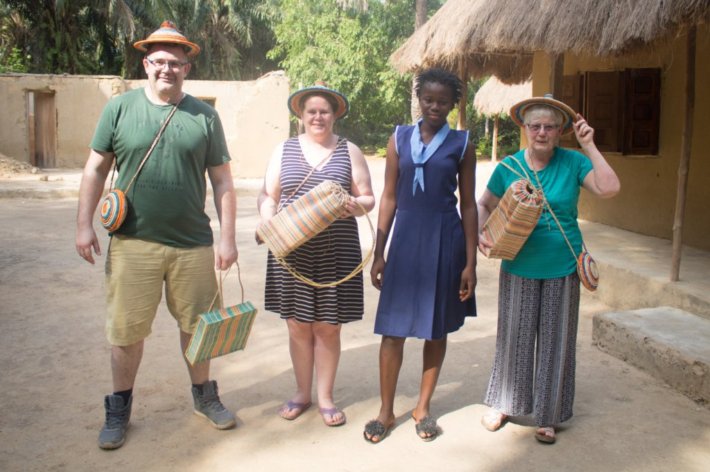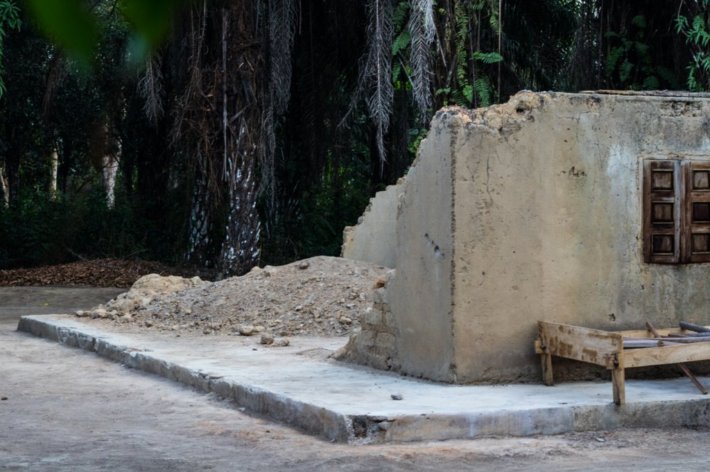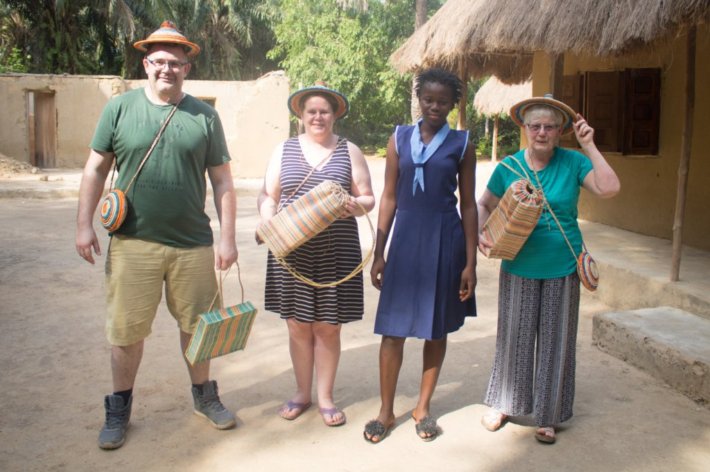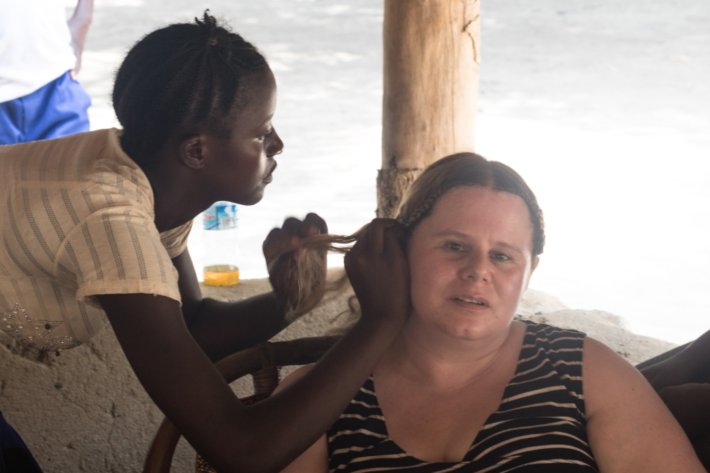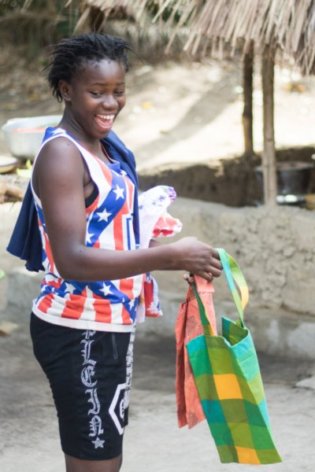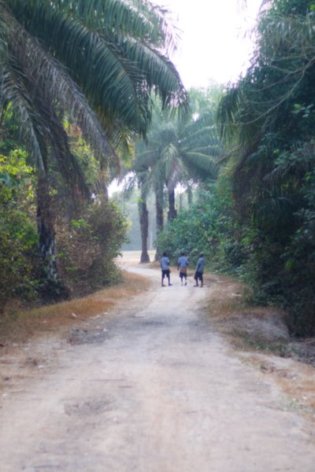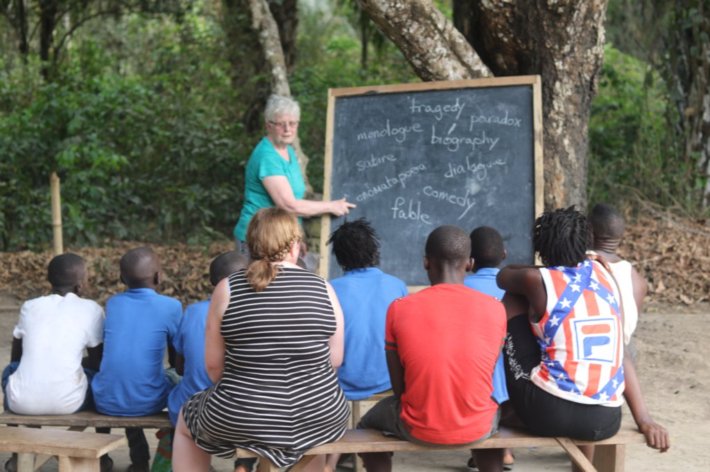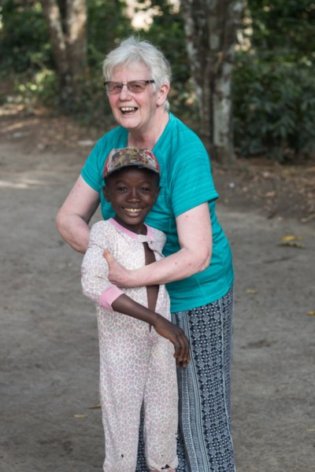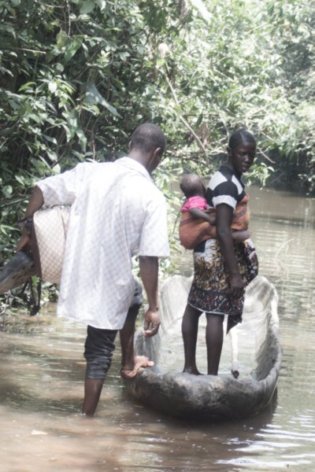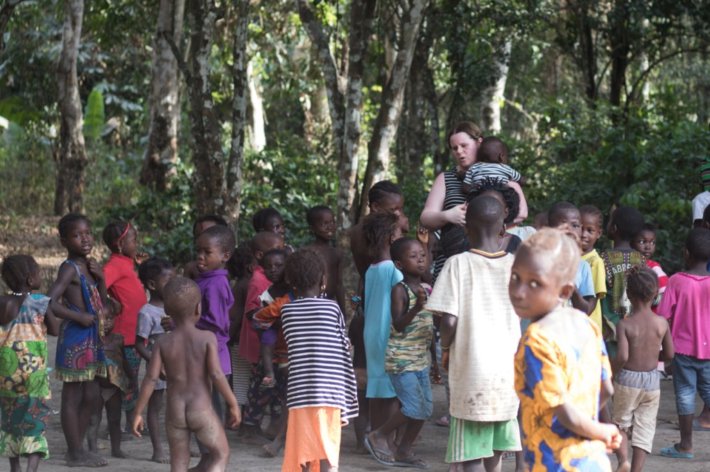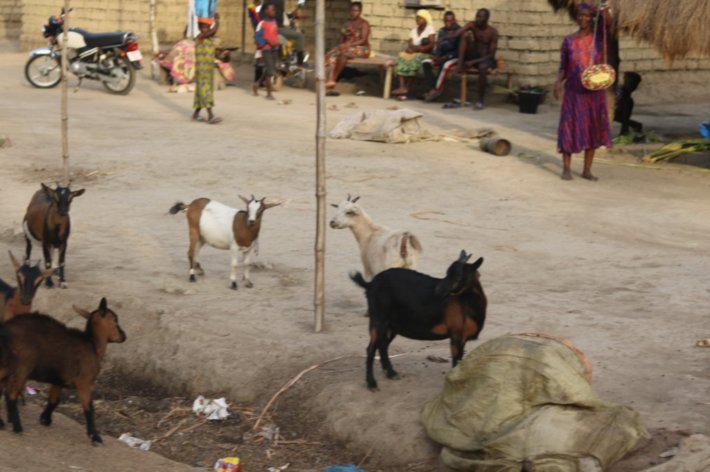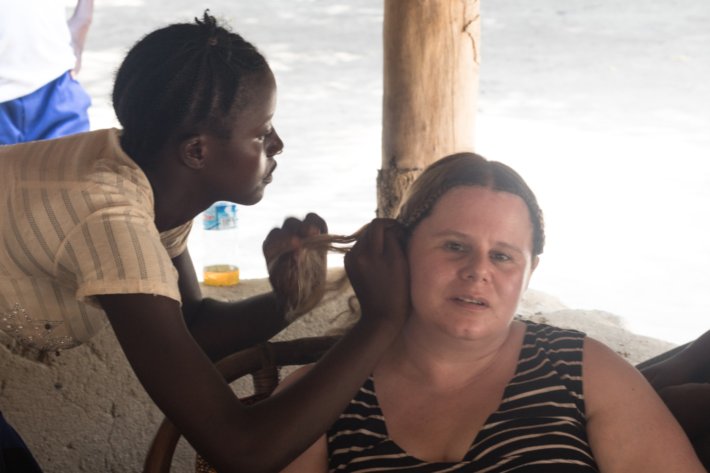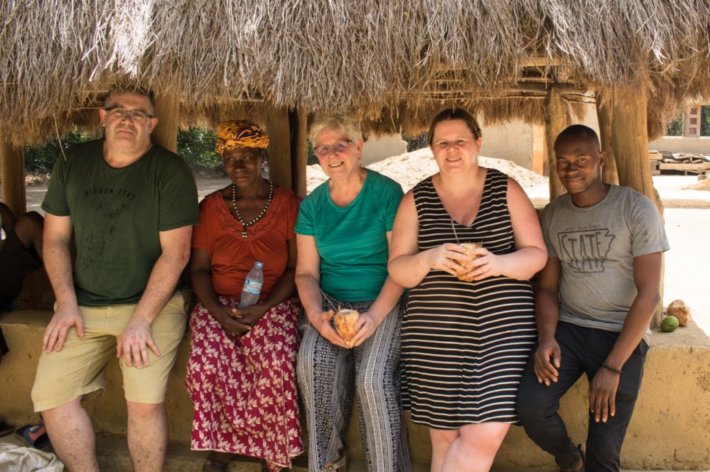Rogbonko, the place in the forest. This was my third visit, Rachel’s second and Chris’s first. We knew it would be a long drive and we had planned to make a stop at Amputee Village in the Western Area Rural District to drop off two large bags of supplies. Amputee is a village some 20 miles out of Freetown and from previous experience I did not expect a comfortable drive
I was pleasantly surprised to find that huge improvements had been made to the road. What was previously a bumpy, chaotic journey where Idrissa would have to manoeuvre and negotiate carefully had become a wider and less busy trunk road where the traffic flowed with ease. The vehicle was decidedly more spacious after dropping off bags and although we would have liked to visit for longer there was a long journey ahead.
The improvement in road meant we arrived in Magburaka sooner than expected. We were deposited in a cafe whilst Abdulai and Idrissa went to the market in Makeni. As much as I enjoy the street markets I learned that white faces shoot the prices up and sometimes it is better to follow instructions and sit and wait. Rachel’s only request was for ingredients for Grandnut Soup be bought.
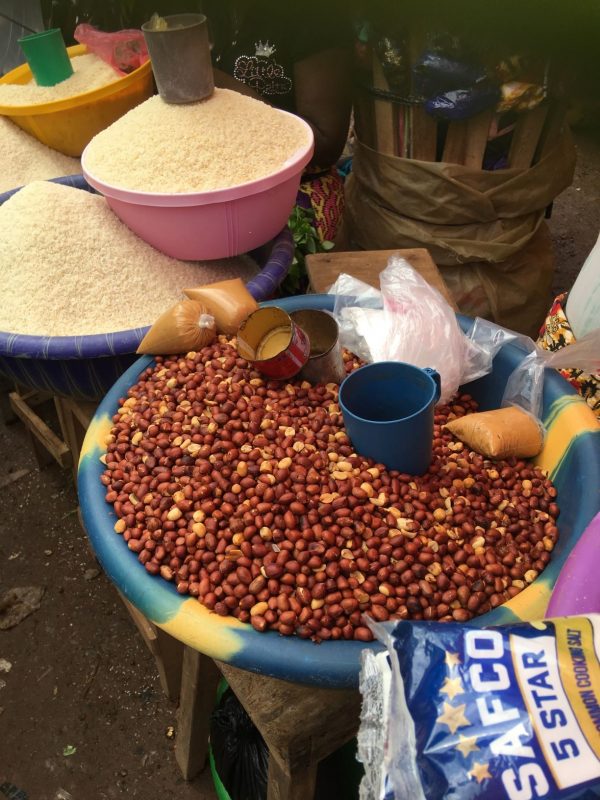
Finally we reached Rogbonko. There was something different. The children did not come out from the huts shouting and waving. There was altogether a much quieter air about the village than before.
Abass, a lovely gentle man and our host, was there waiting to greet us; the two expected visitor huts were not. One was a ruin, it had not stood up to exceptionally heavy rains and there was no money available to repair it. We soon sorted our selves out and quickly settled before the night came down.

The purpose of the visit was to meet with Abass and the junior school pupils who are being sponsored and tutored through school. The school group arrived in the uniforms ARET purchased and proudly showed us their report cards. They were pleased to be at school and hoping to continue to senior secondary after sitting their transition exams. They told us they had just completed reading ‘The Merchant of Venice’ at school. I confess I was quite skeptical but one of the boys delivered the nuts and bolts of the story with some action thrown in. I later discovered that they read the stories rather than the actual Shakespeare plays. Nonetheless, given they have no visual reinforcement through electronic devices his grasp of the plot was impressive. There is a lot of rote learning in schools in part due to the lack of materials and it is hard to see evidence of creative education. We were therefore quite delighted to be presented with bags and traditional sun hats that the group had learned to weave from local grasses.
The group also wanted me to give a lesson on specific vocabulary they had to understand and learn. I found the array of words puzzling and wondered when and if they would ever need to use them but Rule Number One……. do not interfere with the National Curriculum.
We had time to meet with Mr Morlai Forna the village Primary School administrator and the village chief. The latter expressed his thanks for the interest that we were showing in the village education. Unfortunately the assistance promised by the government has been very slow to filter through. Mr Forna expressed concern that some teachers were leaving to teach in schools where salaries were including increments. Abass had been asked to take the post of Headteacher which he has done on an entirely volountary level. They spoke about the difficulty of motivating the pupils with small rewards when there are none to give and holding sports days when there are no small prizes. Fortunately we had a bag full of knitted toys designed and donated by our good friend Maggie in Scotland and it so happened we had some medals and small cups with us too. These were accepted very gratefully. Before leaving we noticed one small toy had managed to escape and was being clutched by a delighted little girl. Before the day ended Chris had time to explore the village with the young lads who insisted on being his guides. They took him on a canoe trip where you stand in the canoe and need particularly strong core muscles to keep balance. The girls on the other hand were very keen to practice their hair dressing skills on Rachel’s long, straight hair which fascinates them. Kemoh’s mother came to visit with a bag of coconuts that she collected and we all enjoyed some refreshing coconut water.
The others in the party seemed to have difficulty sleeping at Rogbonko with the heat and the mattresses and the pillows all being blamed. I fell asleep listening to the chorus of crickets and other nocturnal animals and generally slept well. What I particularly enjoy is waking up very early and slipping out to watch the dawn break, quietly observe the village wakening and walking through the forest taking in the amazing scents. On our first morning I followed my nose to try and locate the overwhelming scent of jasmine. Of course it was not jasmine but a coffee bush. I had no idea the flowers would smell like jasmine and a hint of orange blossom. It catapulted me back a good 50 years to an early morning stroll in Seville one Easter time where the scent of orange blossom was heavy in the air. Another surprise was the fruit of the cashew nut. It was refreshing like a cucumber and the taste reminded me of something which I cannot quite place. The children were allowed to eat the fruit but not the nuts which the village could sell. Plantains were in good supply for breakfast and we also managed to buy and eat a fresh pine-apple.
Our visit was quite short and we left with requests which will be discussed with Abdulai at his team meeting. What did they want? Mr Forna asked if we could send reward stickers, pencils, unwanted sports trophies and medals.; Abass wanted the children to do well in the junior secondary exams and if possible be able to employ tutors for specialist subjects like Maths and Science. I could not help thinking that this could be an excellent Gap Year project for two or three dedicated and enterprising young people who could be self sufficient, be prepared to do without technology and accept a very basic style of life.




